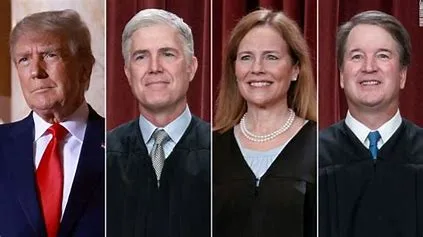In a 50-page submission, President Trump has petitioned the US Supreme Court to delay a crucial ruling on presidential immunity in the 2020 election case. His attorneys argued that without this immunity, the integrity of the presidency would be compromised.
Trump’s legal team urged the Supreme Court to temporarily halt a lower-court decision rejecting his immunity claim in a federal election interference case. They emphasized the significance of the issue, calling it a “novel, complex, and momentous question.”
Arguing against the lower court’s ruling, Trump’s attorneys highlighted the potential consequences of allowing a former president to face criminal prosecution for official acts, warning of “destructive cycles of recrimination.” They also expressed concerns about the impact on Trump’s ability to campaign against President Biden.
Trump’s move to delay the case comes amidst his bid for the Republican presidential nomination, setting the stage for a potential rematch with Biden. The Supreme Court’s decision on Trump’s request for a stay will have significant ramifications for his legal battles and political future.
The appellate court’s recent rejection of Trump’s immunity claim prompted his appeal to the Supreme Court, underscoring the high stakes involved. Trump’s pursuit of immunity has been a central focus amidst ongoing legal challenges, including a separate case challenging his eligibility for the 2024 ballots.
Ultimately, the Supreme Court’s ruling will not only determine the outcome of Trump’s legal battles but also shape the future of presidential immunity and American democracy as a whole.
This will be a major decision:
In SCOTUS appeal, Trump’s legal team argues:
“If the prosecution of a President is upheld, such prosecutions will recur and become increasingly common, ushering in destructive cycles of recrimination. Criminal prosecution, with its greater stigma and more severe penalties, imposes a far greater “personal vulnerability” on the President than any civil penalty.
The threat of future criminal prosecution by a politically opposed Administration will overshadow every future President’s official acts—especially the most politically controversial decisions.
The President’s political opponents will seek to influence and control his or her decisions via effective extortion or blackmail with the threat, explicit or implicit, of indictment by a future, hostile Administration for acts that do not warrant any such prosecution.
This threat will hang like a millstone around every future President’s neck, distorting Presidential decision-making, undermining the President’s independence, and clouding the President’s ability “‘to deal fearlessly and impartially with’ the duties of his office.”
